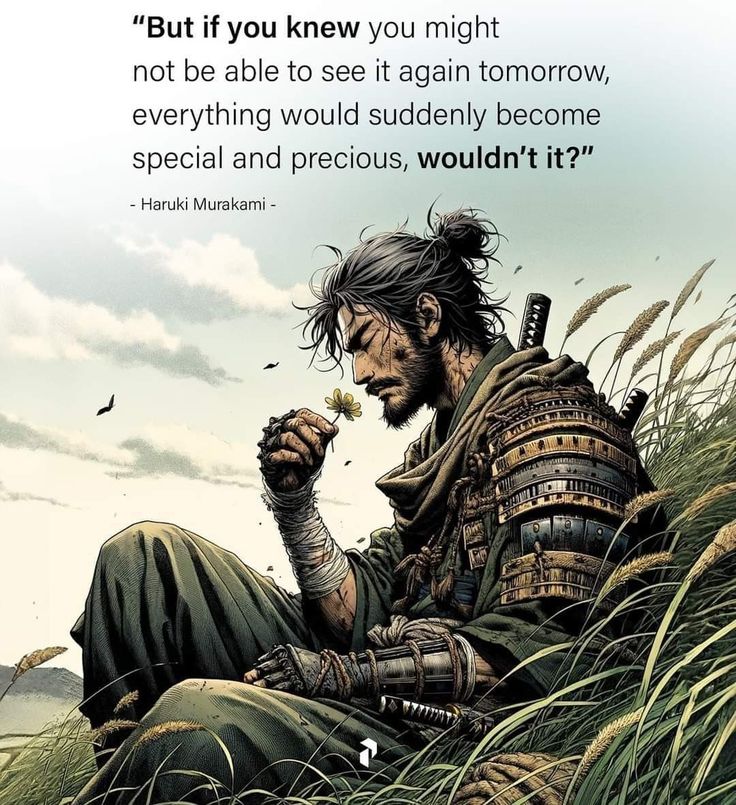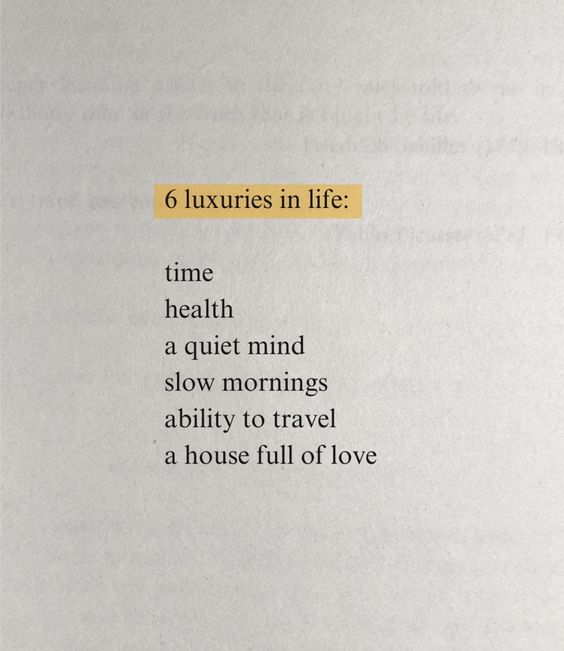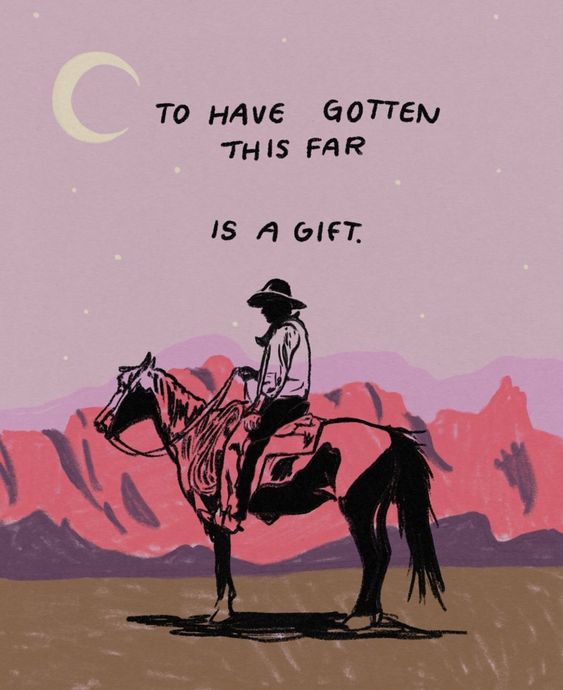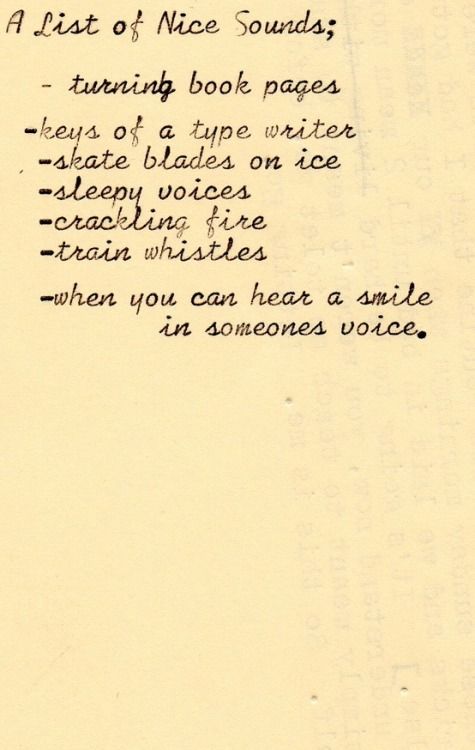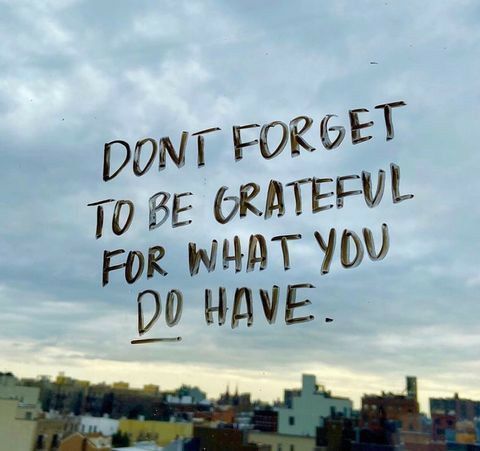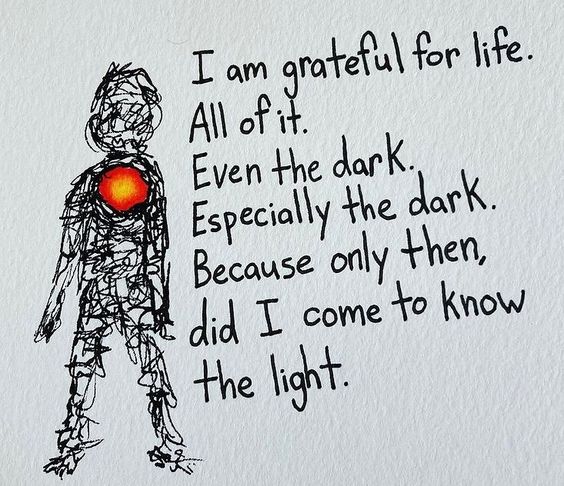“Modern marketing culture is designed to amplify our desires. To turn faint wants into desperate needs. As a result, we’re intimately familiar with what we want. And we strive to get it. The problem with getting what you want is that now you have a hole, because you don’t want that thing anymore, you have it. We then are on a cycle, eager to find a new thing to want. Which means that the thing you used to want but now have fades in comparison. There’s a more resilient path: To commit to wanting what you have.”
Seth Godin
“A parent who acknowledges the fragility of life understands that every moment with their child is a gift not to be wasted. A wise parent looks at the world, harsh as it is, and says, ‘I see what you’re capable of, what you might do to my family tomorrow, but today, you’ve spared us. I will not take that for granted.’ That is how we must live—not just with our children, but with our wealth, our health, the peace in our country, the clear skies above.”
Ryan Holiday
“That troublesome client—thank you, it’s helping me develop better boundaries. That traffic jam—thank you, it gave me time to call my wife and have a nice, meandering conversation. That rejection email—thank you, it forced me to reevaluate and improve my work. The political realities of our time–thank you, it’s a chance to test myself, to really stick to what I believe in. That loss—thank you, for reminding me of what truly matters in life.”
Ryan Holiday
“If, like many people, you tend to be vaguely unhappy much of the time, it can be very helpful to manufacture a feeling of gratitude by simply contemplating all the terrible things that have not happened to you, or to think of how many people would consider their prayers answered if they could only live as you are now. The mere fact that you have the leisure to read this book puts you in a very rarefied company. Many people on earth at this moment can’t even imagine the freedom that you currently take for granted.”
Sam Harris, Waking Up (Page 96)
“You slept on a slender pallet that night in Vegas. I was supposed to be sleeping next to you but I couldn’t because I was so happy. Your snores reminded me that you were alive. If you were alive and next to me, I had everything in the world I could ever want.”
Kiese Laymon, Heavy (Page 3)
“We tend to think of gratitude as appreciation for what we have been given. Monks feel the same way. And if you ask a monk what he has been given, the answer is everything. The rich complexity of life is full of gifts and lessons that we can’t always see clearly for what they are, so why not choose to be grateful for what is, and what is possible? Embrace gratitude through daily practice, both internally—in how you look at your life and the world around you—and through action. Gratitude generates kindness, and this spirit will reverberate through our communities, bringing our highest intentions to those around us.”
Jay Shetty, Think Like A Monk (Page 221)
“There are imperfect people in our lives—ones toward whom we feel unresolved or mixed emotions and therefore have trouble summoning gratitude. And yet, gratitude is not black-and-white. We can be grateful for some, but not all, of a person’s behavior toward us. If your relationships are complicated, accept their complexity. Try to find forgiveness for their failures and gratitude for their efforts.”
Jay Shetty, Think Like A Monk (Page 220)
“When monks are praised, we detach, remembering that whatever we ere able to give was never ours to begin with. To receive gratitude with humility, start by thanking the person for noticing. Appreciate their attention and their intention. Look for a good quality in the other person and return the compliment. Then take the gratitude you are given as an opportunity to be grateful to your teachers.”
Jay Shetty, Think Like A Monk (Page 216)
“Simple pleasures are just as transformative as extravagant experiences—so long as you remember how to enjoy them. I keep going back to this more than anything right now: the power of a dandelion, a blade of grass, a crisp breeze. We have forgotten how necessary these things are, and how important they are to our quality of life. We have forgotten about the very things that are right outside our own window. When you see something long enough, it becomes invisible—but, one of the best things you can do for yourself? Is to remember how to see. And sometimes, being in a small town does exactly that: gives you a more intimate lens with which to see the world around you. And to remind yourself that—no matter how overwhelming your world has gotten? There’s a gentle one waiting for you right here.”
Ash Ambirge
“What do we say when a customer or colleague says, ‘thank you’? For a long time, it was ‘you’re welcome.’ This indicates that you put in some effort and you’re willing to do it again on request. Recently ‘no problem’ has become more common. This implies that the effort could have been a huge hassle, but this time, it was okay. For people who are choosing to do the work of hospitality and connection, though, the most accurate answer might be, ‘my pleasure.’ After all, you had a choice, and you chose to do this work precisely so that it could have an impact on someone else. The story we tell ourselves about the work can be fuel for finding ways to do it better. If it’s not a pleasure, and you’re doing things like this all day, it might be a good time to find something else to do.”
Seth Godin
